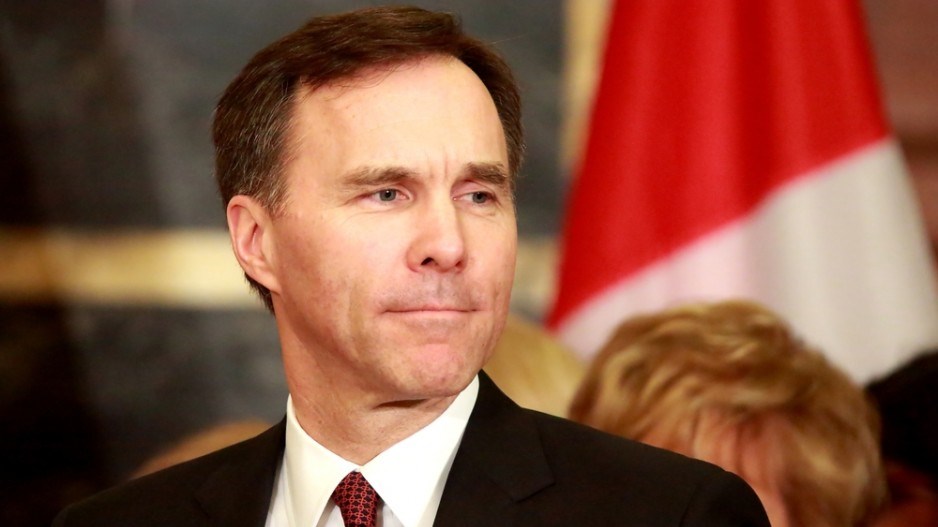The Federal Ministry of Finance announced that it will introduce a $50,000 threshold on passive income into proposed tax changes.
Finance Minister Bill Morneau said the system will now allow $50,000 of passive investment income annually to be sheltered before the higher tax rate is imposed. The change means that if $1 million is invested in passive vehicles, businesses will not be impacted by additional tax on returns of up to 5%.
After a large backlash from the business community to the original announced changes, the government may be looking to quell the outrage.
Dan Baxter, director of policy development, government and stakeholder relations for the B.C. Chamber of Commerce said these changes are a step in the right direction.
“We get the sense the minister and the federal government are aware of the impact that these proposed changes are having on small businesses and are trying to come up with solutions,” said Baxter. “ We are encouraged that they’re listening.”
Money earned from investments like stock, bonds and rental real estate in a corporation is considered passive income. Businesses have used passive income to invest money back into the company after paying a lower tax rate on the initial principal invested.
In September, Faculty Brewing Co., a Vancouver based brewery, told Business in Vancouver that the ability to invest money and shield it from taxes is how small businesses save money in profitable years to survive through leaner years.
“I’m putting money in the business for a rainy day,” said Faculty owner Mauricio Lozano. “I don’t know how my winter is going to be or how my fall is going to be or what’s going to happen in the future.”
In a press release, the Department of Finance Canada advised that the recent proposed changes to the passive income tax proposal would now only affect 3% of firms in Canada. However, while only 2.9% of firms are affected, those firms earn 88% of the passive income in Canada. The top 29,000 firms by revenue make up 1.6% of the Canadian Controlled Private Corporations (CCPC) in the country and have 80% of the taxable passive income. This concentration means that 85% of firms have no passive income at all, according to information from the Department of Finance Canada.
“The question we’re asking at the Chamber is why are those 3% of businesses holding that much in passive investment,” said Baxter. “The next part of the conversation is making sure that businesses that are holding that large sum of passive investment aren’t being unfairly hindered from making investments in their business.”
Baxter also highlighted the importance of learning why passive income is so concentrated at the top of CCPCs.
The government also announced that it would no longer be pursuing limits of who can access the lifetime capital gains exception. The exception allows shareholders to sell the shares of their company and not pay taxes on lifetime gains of up to $836,000 . As well, it announced it will not be moving forward with proposed changes that would have prevented the extraction of retained earnings from a private corporation as a capital gain rather than as a dividend. Both the government and Baxter say this will specifically help farmers and entrepreneurs who are looking to pass off their business to their children.
Baxter says that after today’s announcement, many of the bigger concerns business owners had about the proposed tax changes have been addressed.
While the Chamber believes that some of the major concerns with the small business tax proposal have been addressed, it has other concerns it would like to continue to discuss with the federal government. The concerns pertain to red-tape reduction and Canada Revenue Agency (CRA) fines.




